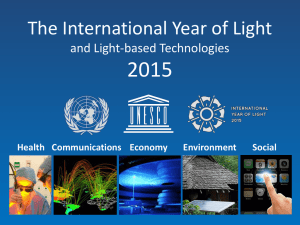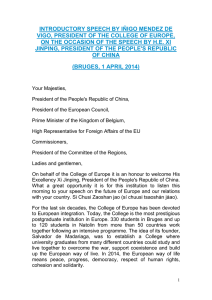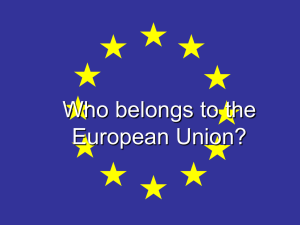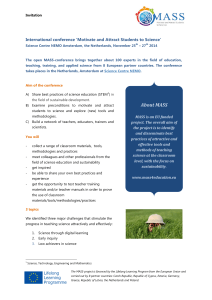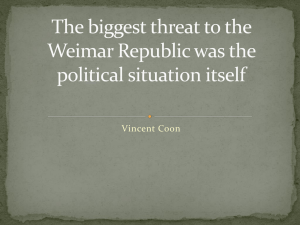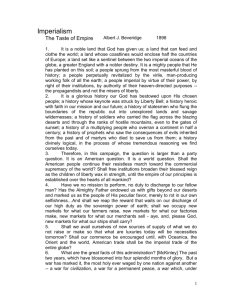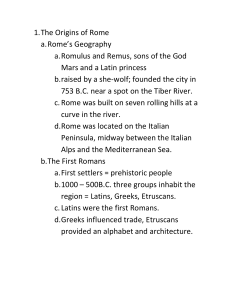Presidential Candidate William Jennings Bryan`s Speech
advertisement
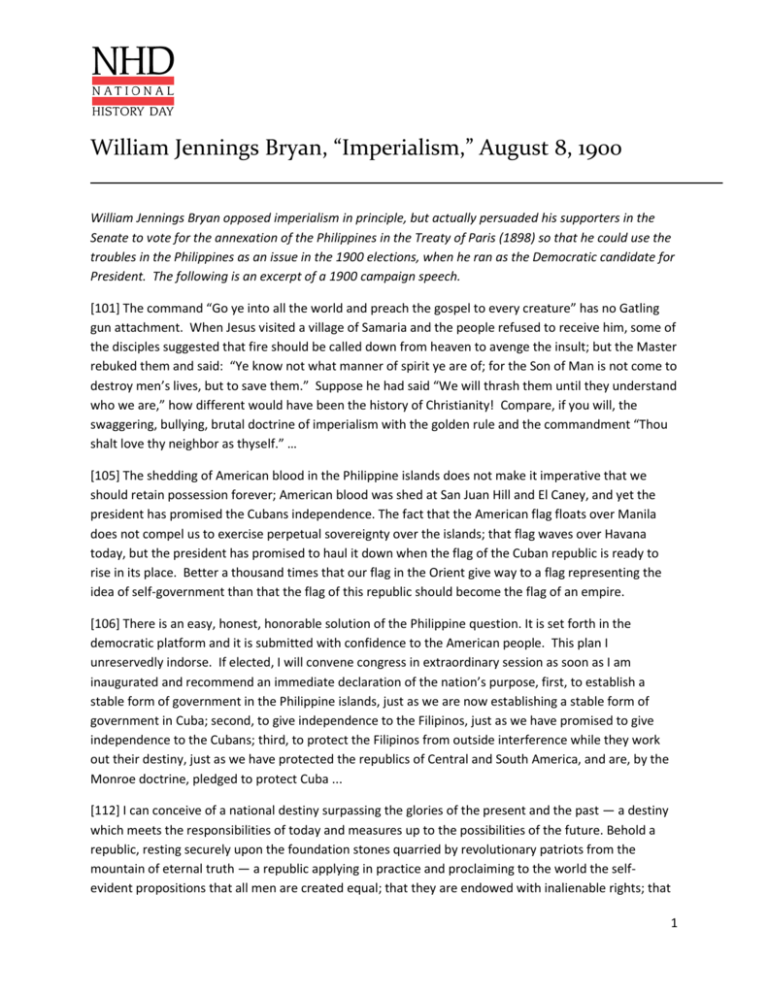
William Jennings Bryan, “Imperialism,” August 8, 1900 William Jennings Bryan opposed imperialism in principle, but actually persuaded his supporters in the Senate to vote for the annexation of the Philippines in the Treaty of Paris (1898) so that he could use the troubles in the Philippines as an issue in the 1900 elections, when he ran as the Democratic candidate for President. The following is an excerpt of a 1900 campaign speech. [101] The command “Go ye into all the world and preach the gospel to every creature” has no Gatling gun attachment. When Jesus visited a village of Samaria and the people refused to receive him, some of the disciples suggested that fire should be called down from heaven to avenge the insult; but the Master rebuked them and said: “Ye know not what manner of spirit ye are of; for the Son of Man is not come to destroy men’s lives, but to save them.” Suppose he had said “We will thrash them until they understand who we are,” how different would have been the history of Christianity! Compare, if you will, the swaggering, bullying, brutal doctrine of imperialism with the golden rule and the commandment “Thou shalt love thy neighbor as thyself.” … [105] The shedding of American blood in the Philippine islands does not make it imperative that we should retain possession forever; American blood was shed at San Juan Hill and El Caney, and yet the president has promised the Cubans independence. The fact that the American flag floats over Manila does not compel us to exercise perpetual sovereignty over the islands; that flag waves over Havana today, but the president has promised to haul it down when the flag of the Cuban republic is ready to rise in its place. Better a thousand times that our flag in the Orient give way to a flag representing the idea of self-government than that the flag of this republic should become the flag of an empire. [106] There is an easy, honest, honorable solution of the Philippine question. It is set forth in the democratic platform and it is submitted with confidence to the American people. This plan I unreservedly indorse. If elected, I will convene congress in extraordinary session as soon as I am inaugurated and recommend an immediate declaration of the nation’s purpose, first, to establish a stable form of government in the Philippine islands, just as we are now establishing a stable form of government in Cuba; second, to give independence to the Filipinos, just as we have promised to give independence to the Cubans; third, to protect the Filipinos from outside interference while they work out their destiny, just as we have protected the republics of Central and South America, and are, by the Monroe doctrine, pledged to protect Cuba ... [112] I can conceive of a national destiny surpassing the glories of the present and the past — a destiny which meets the responsibilities of today and measures up to the possibilities of the future. Behold a republic, resting securely upon the foundation stones quarried by revolutionary patriots from the mountain of eternal truth — a republic applying in practice and proclaiming to the world the selfevident propositions that all men are created equal; that they are endowed with inalienable rights; that 1 governments are instituted among men to secure these rights, and that governments derive their just powers from the consent of the governed. Behold a republic in which civil and religious liberty stimulates to earnest endeavor and in which the law restrains every hand uplifted for a neighbor’s injury — a republic in which every citizen is a sovereign, but in which no one cares to wear a crown. Behold a republic standing erect while empires all around are bowed beneath the weight of their own armaments — a republic whose flag is loved while other flags are only feared. Behold a republic increasing in population, in wealth, in strength and in influence, solving the problems of civilization and hastening the coming of an universal brotherhood — a republic which shakes thrones and dissolves aristocracies by its silent example and gives light and inspiration to those who sit in darkness. Behold a republic gradually but surely becoming the supreme moral factor in the world’s progress and the accepted arbiter of the world’s disputes — a republic whose history, like the path of the just, “is as the shining light that shineth more and more unto the perfect day.” Source: http://voicesofdemocracy.umd.edu/william-jennings-bryan-imperialism-speech-text/ 2

